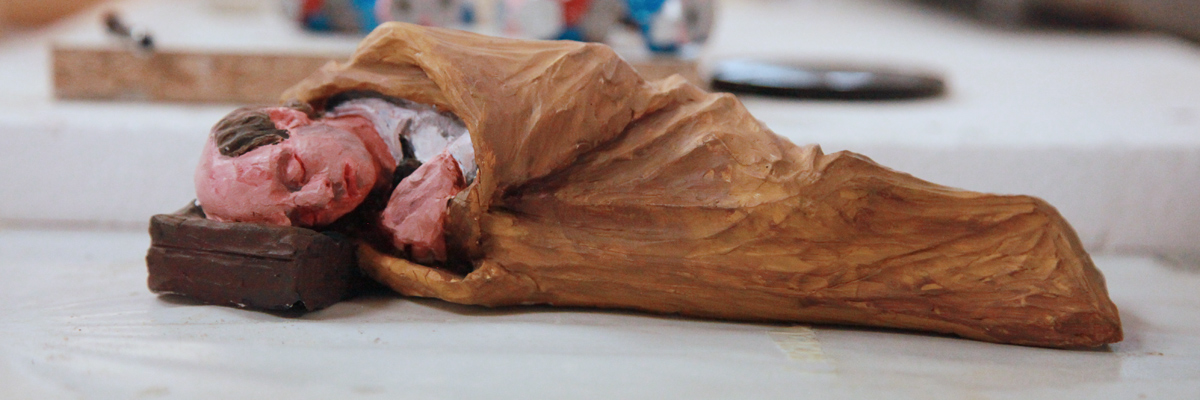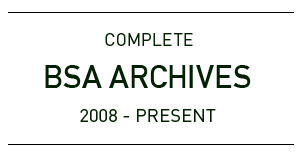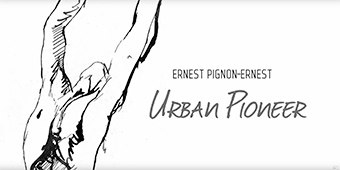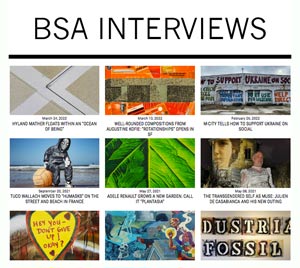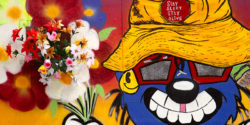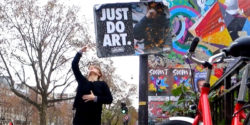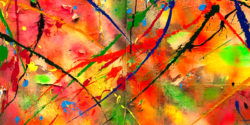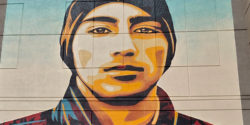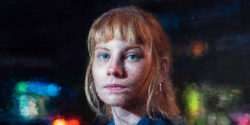The endgame of vulture capitalism. The implosion of the corporate culture. The subtle differences between public housing and private jailing. The melting of the ice caps.
However you have wished to interpret the work of Spanish sculptural street artist Isaac Cordal over the last decade, you probably thought he didn’t hold much hope for our future. Or us. But he says his work is more a reflection of what he sees, and he presents it will
After a recent visit to his ceramic tiled and
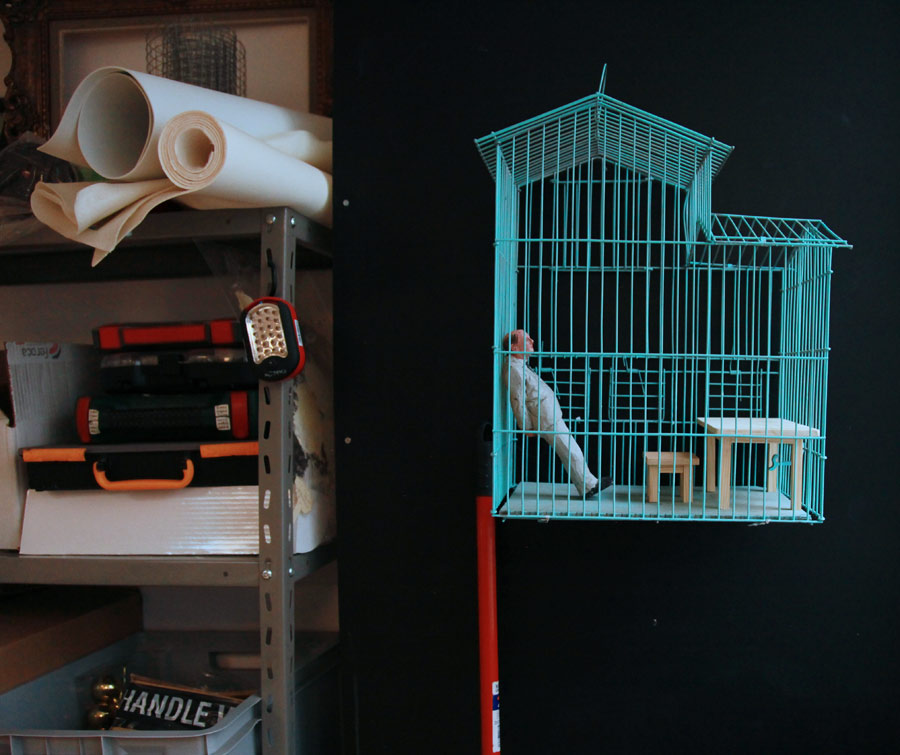
It is at least as entertaining as it is educational. His sad characters and formal scenes of concrete dystopia are also humorous in their unlikely repetition, their utter lack of comfort, their repurposing of common objects as dire ones. His critiques of consumerism, environmental degradation, militarism, corporatism merging into fascism are sometimes couched by his own understated humor and attitude of childlike play as well.
Not that people were chuckling as they encircled the austere and degrading urban jungle scene he constructed in the Spanish capital for the
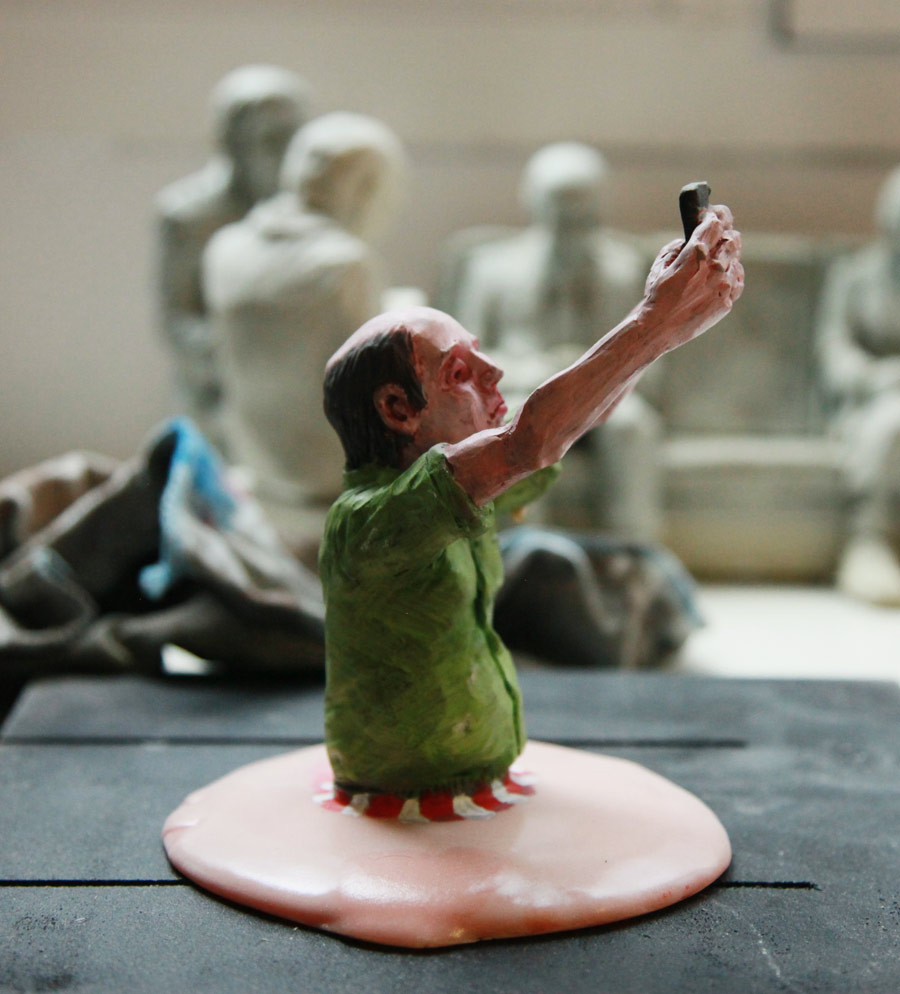
But did the art crowd also see the two businessmen carrying a stretcher full of wheatgrass? The absurdity is a relief. Are they rescuing a rectangular slab of nature? Possibly cultivating it for farming? Blissing out on a wheatgrass juice cleanse to counter the martinis and amphetamines?
And what about these new human-faced pigs gathered around, looking for a trough? He presents the human/animal hybrids without comment under electric lights that glitter warmly across the compound. They could be a metaphor addressing attitudes or behaviors. They may also be a glimpse into a law-free amoral future where any new life-form you conjure can be sequenced and produced.
(Click here to read our

A graduate in sculpture at the University of Fine Arts near his hometown in Galicia, he also studied conservation of stone crafts and trained in London at Camberwell College. He was a founding member of a digital art community called Alg-a.org, a heavy metal guitarist in a band called Dismal, and a publisher of a fanzine called Exorcism.
As you learn these details about his life in the 90s and 2000s, you gain a greater appreciation for the powerful work of a guy who has emerged uniquely on the global street art stage with his Cement
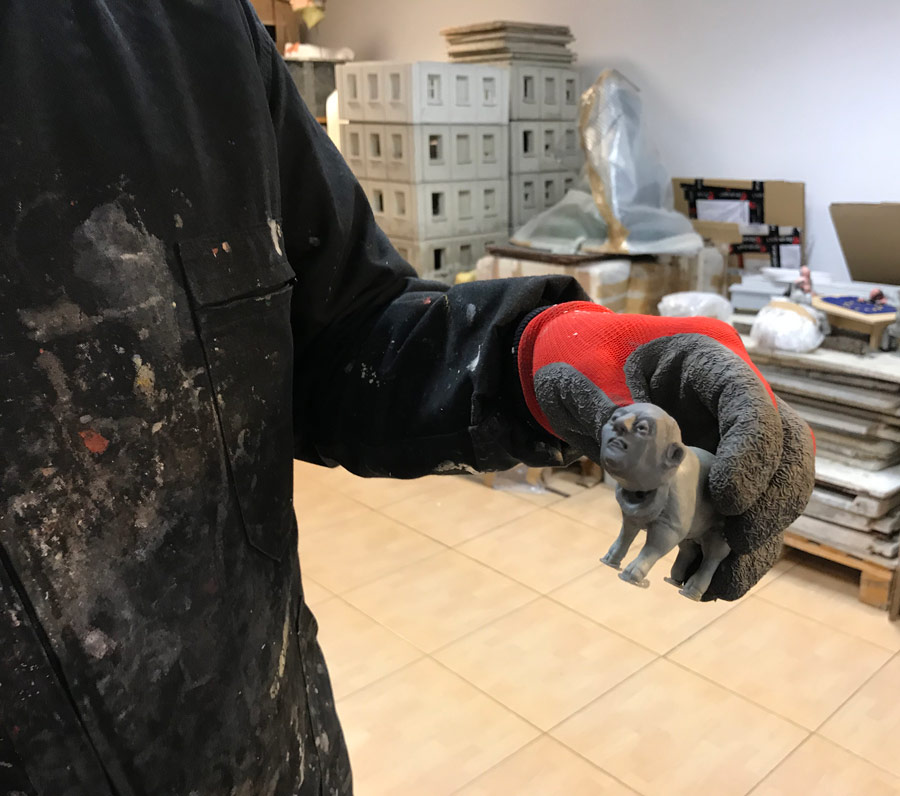
As
Here is where you see the craftsman at work; carefully attentive,
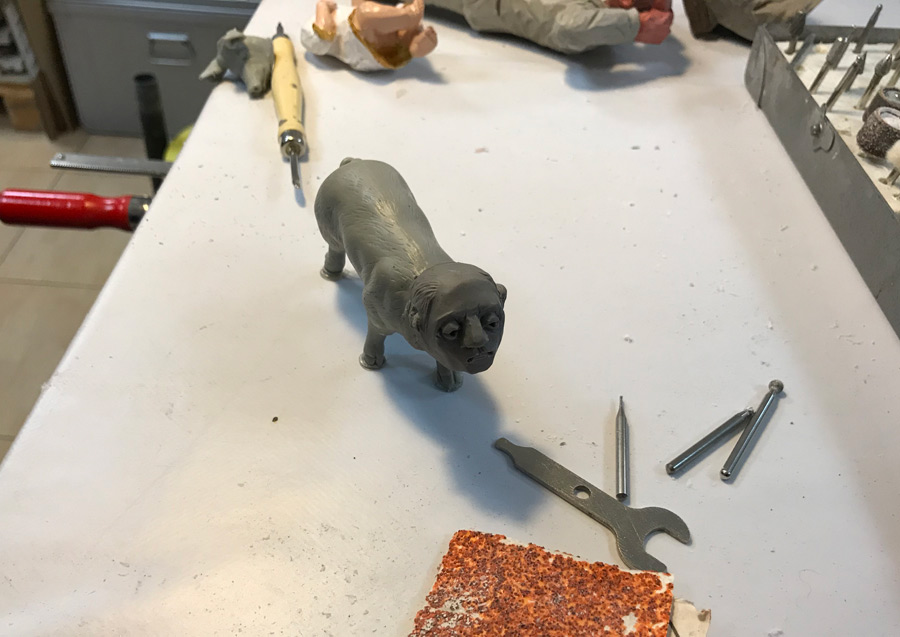
The result is rough and unrefined, proportions not sweet. He blazes through these final actions and presents his new hybrid man-pig, a satisfied glint flashing by as he blinks. The drill whirrs downward and he sits on the stool for a minute to flip over the figurine a few times and inspect it.
BSA: I imagine sometimes that people must think that you are walking around with a cloud over your head – but you’re not really. You’re a happy person who thinks seriously about the world and its issues.
Isaac: It’s not that I am choosing the topics. It is something that came by default. It is my personality.
We can find water on Mars but we can’t feed people here – what’s the reason for this? Why is our only worry about how we can have more and more and more? In that
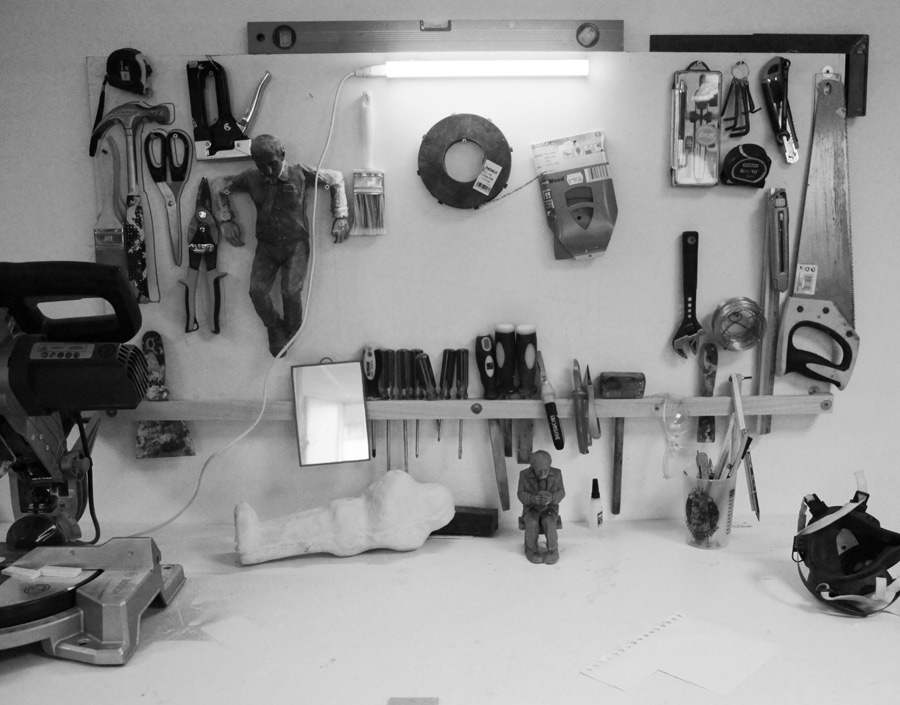
BSA: Do you think your work is conceptual art?
Isaac Cordal: I don’t think so because it’s pretty direct. It’s not codified. It’s very easy to understand and with conceptual
BSA: So you been doing this project using cement for maybe 15 years?
Isaac Cordal: I don’t know maybe the first one was in 2005. Maybe before because I have some others that I made in cement that maybe go back 1999 it’s crazy how fast time goes. Because it was in 1996 that I started to study fine arts at the university in my hometown in Galicia. I also went to stone-carving school for five years. We were like slaves there because we were working with big stones – but I learned quite a lot because I learned to do more in terms of carving and modeling clay.
It was quite an experience for me. Most of the school was nice because it was more conceptual or theoretical – and it was interesting for me to learn more about contemporary art.
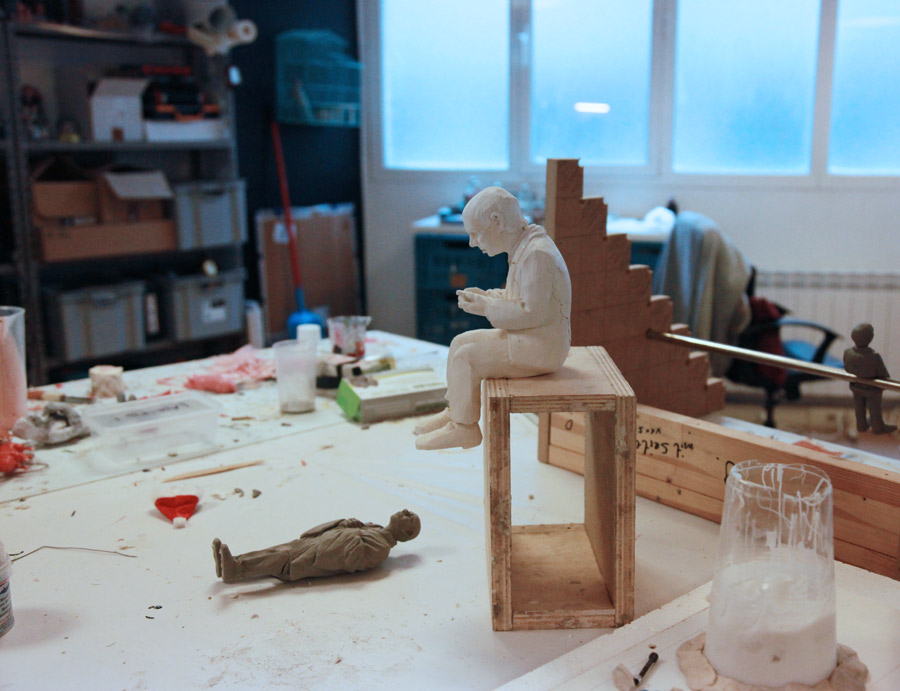
BSA: How do you feel about this time of your life as an artist?
Isaac Cordal: The future for me I think is a little uncertain because every day is like a new year. I’m laying in the bed hiding behind my covers just looking over the edge. You say, “Oh my God another day that you have to prove yourself, do your projects.”
There are different venues and situations for artists but I think it is a kind of battle,
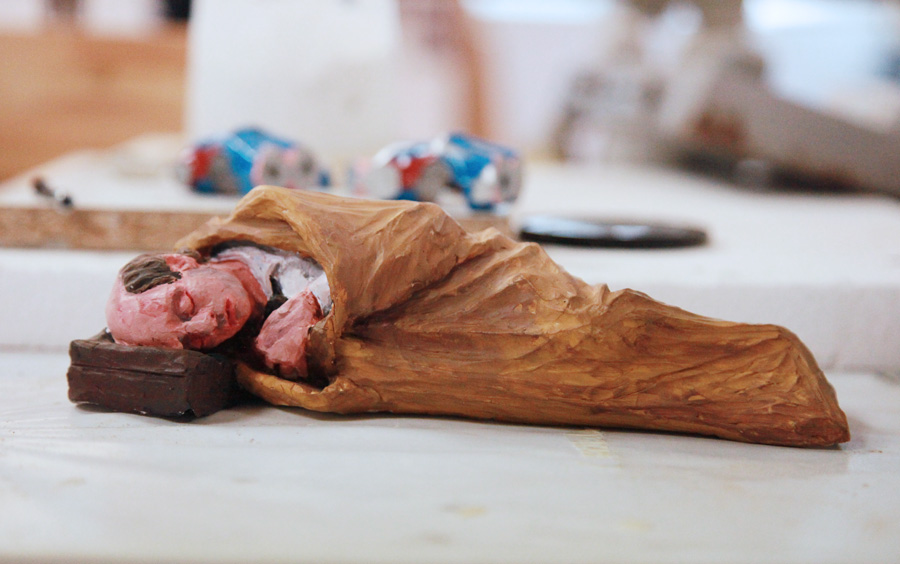
BSA: Do you have a sense about how people see your art?
Issac Cordal: We have to deal with so many fears that this society is selling to us and it seems that you have to think about them. I think
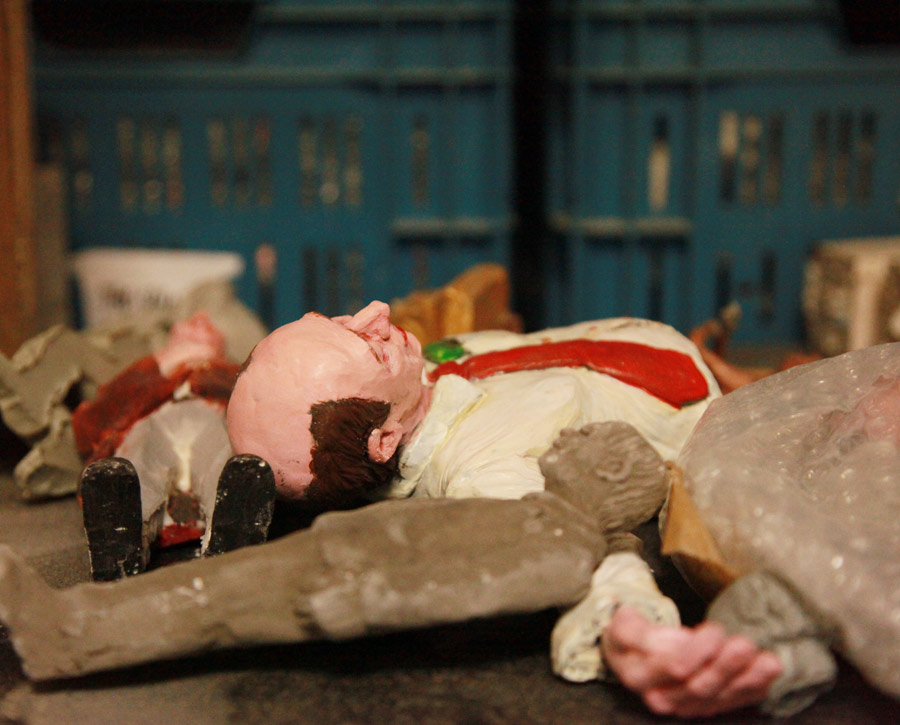
BSA: What perceptions or reactions do you think they are having when looking at the “Yard” installation, for example?
Isaac Cordal: The “Yard” is kind of a reflection of ourselves on a small scale. The topics are a little bit pessimistic but perhaps people can see it as a sort of reflection. They probably think about the topic that is suggested behind the installation.
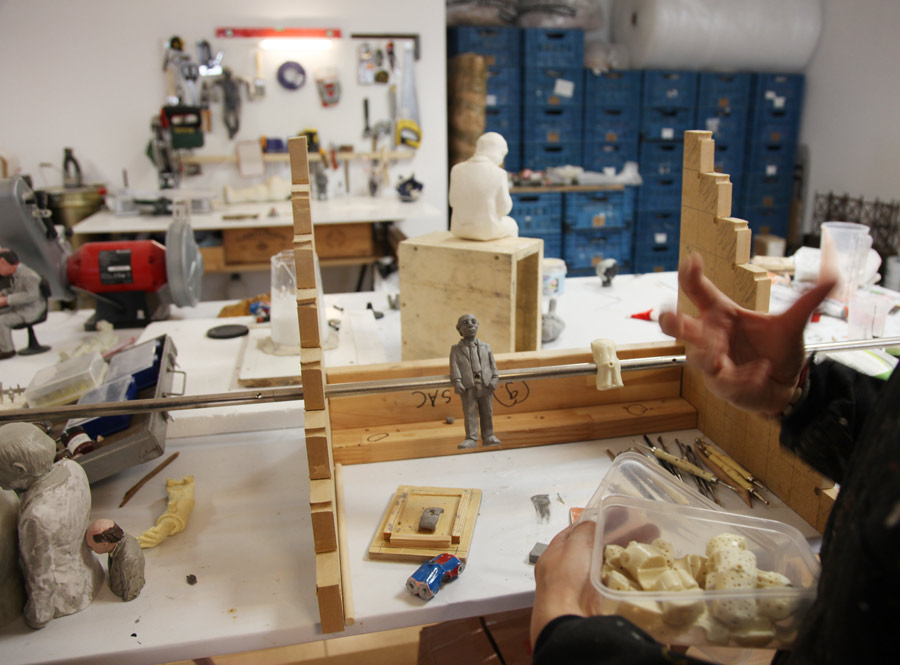
BSA: Did you feel a sense of tension, given your worldview about politics and power and privilege and all of the societal structures we work within – your politics are so strong. How do you decide what to manifest?
Isaac Cordal: I don’t want to do real political art. I think it is quite complicated. You have to be very clean. When you do political art you cannot make mistakes. In my
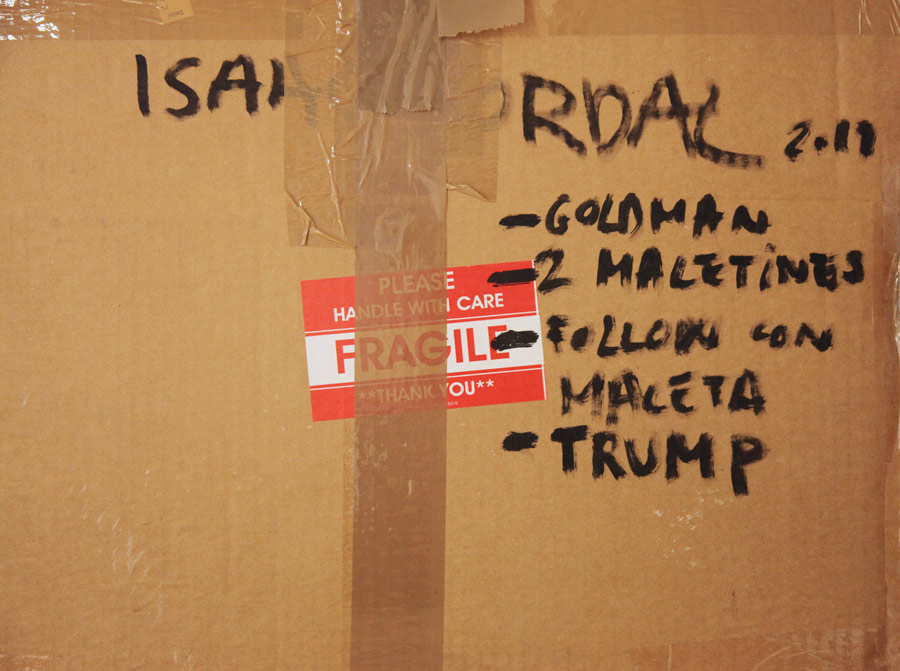
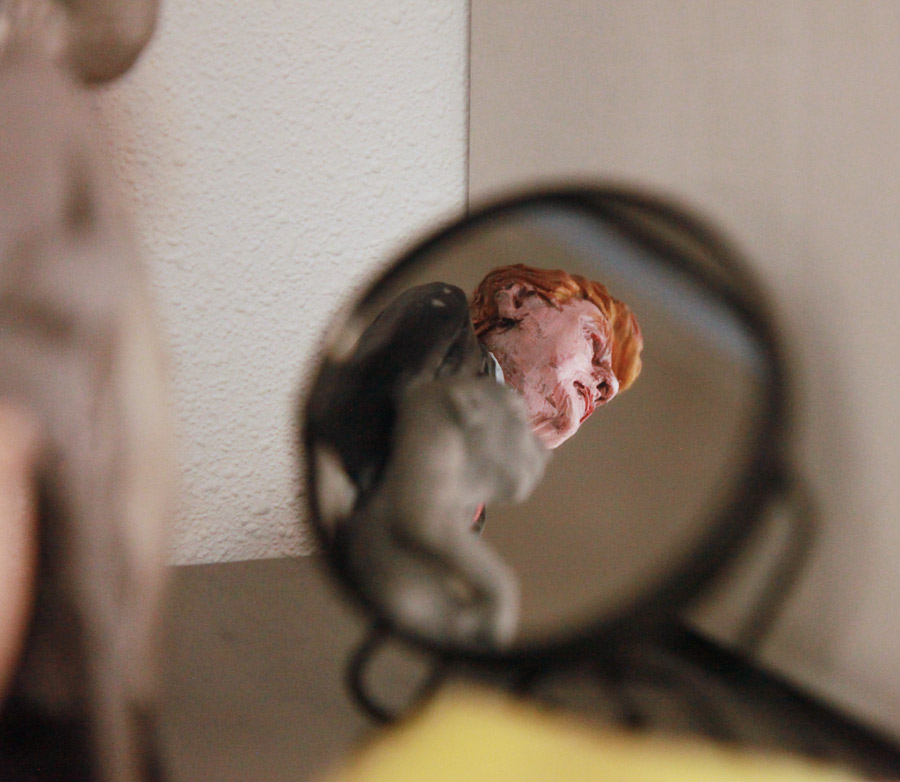
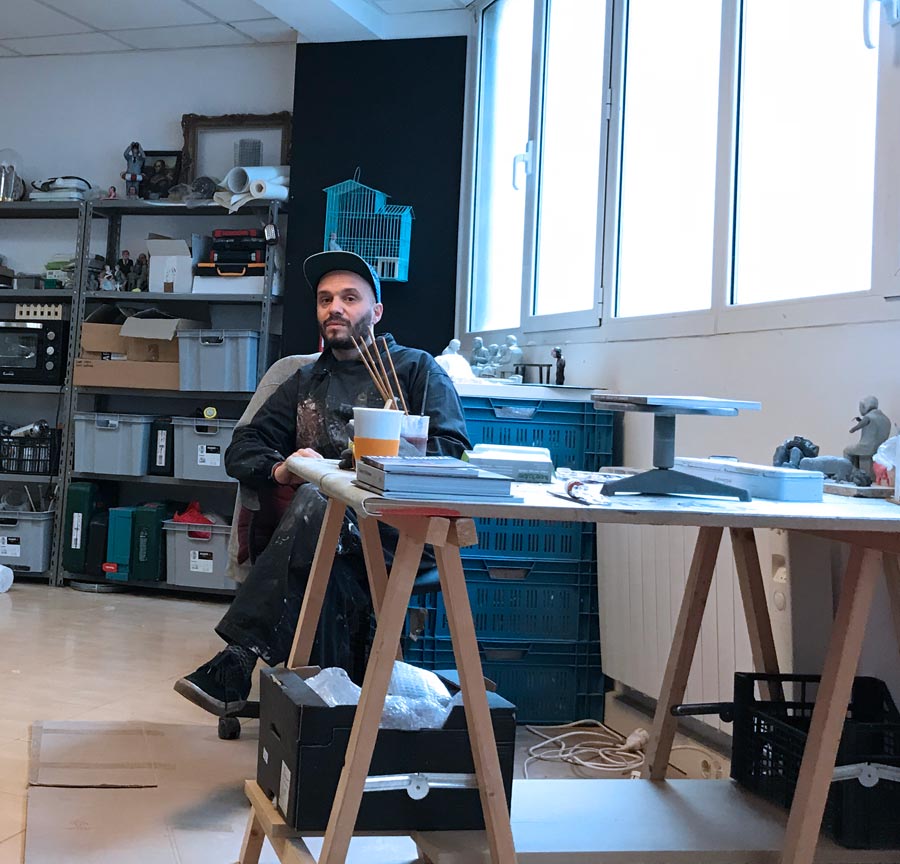
Other Articles You May Like from BSA:
It’s good to see artists stretch themselves creatively, going outside of their comfort zone, hopefully, and discovering new techniques and approaches to their art. “You cannot stay at the same level ...
For twelve days we're presenting twelve wishes for 2012 as told by an alternating roster of artists and BSA readers, in no particular order. Together, they are a tiny snapshot of the people wh...
You picked them! Last week you saw the Top Murals and the Top Videos. Today here are our Top Stories of 2015. BSA readers told us by your direct comments and online sharing – that you love our cover...
Udane Juaristi (Udatxo) A painter. On the street. Capturing the figure with brush in hand, obligating the gaze, summoning the flesh and texture from the public space, making it personal and private. ...
Our weekly focus on the moving image and art in the streets. And other oddities. Now screening : 1. Rap Quotes ATL: Dirty South Edition 2. Narcelio Grud - Cinetic Graffiti 3. DourOne in Sout...
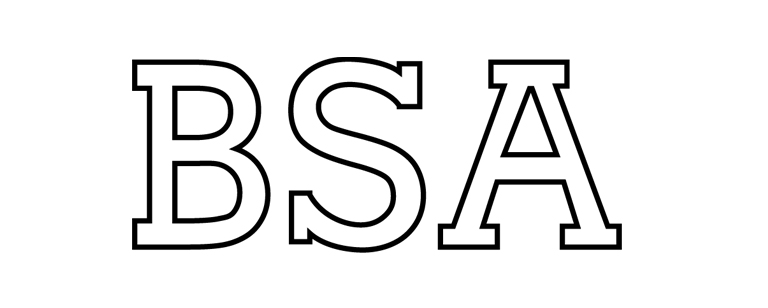 BROOKLYN STREET ART LOVES YOU MORE EVERY DAY
BROOKLYN STREET ART LOVES YOU MORE EVERY DAY